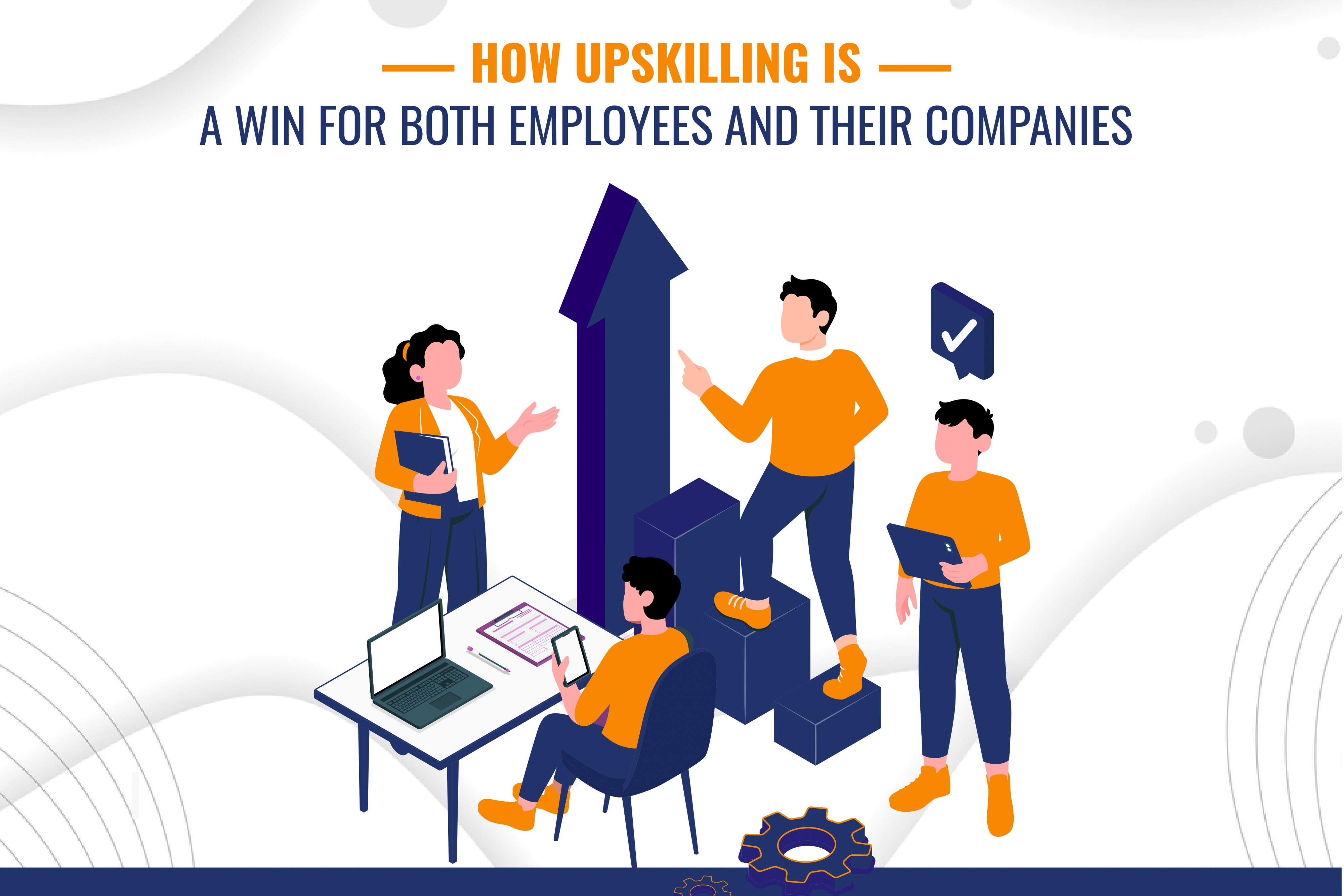
How Upskilling Is A Win For Both Employees And Their Companies
In today's rapidly evolving business landscape, the term "upskilling" has become more than just a buzzword; it's a strategic imperative for both employees and their companies. Upskilling refers to the process of acquiring new skills or enhancing existing ones to keep pace with changing job requirements and industry demands. This practice is not only beneficial for individuals looking to advance their careers but also for companies that invest in their employee's growth. In this article, we will explore how upskilling is a win-win situation, benefiting both employees and the organizations they work for.
How Upskilling Benefits Both Employees and Businesses
1. Enhanced Employee Performance
Upskilling leads to enhanced employee performance, which directly benefits the company. When employees acquire new skills or deepen their expertise, they become more proficient in their current roles. This results in increased productivity, improved quality of work, and a greater ability to meet and exceed performance goals. Employees who continually upskill are more likely to take ownership of their work, contribute innovative solutions, and demonstrate a higher level of commitment to their roles.
For example, a sales representative who undergoes advanced sales training in Leadership Training and Development may become more adept at closing deals, thereby increasing revenue for the company. Similarly, a software developer who learns the latest programming languages and techniques can create more efficient and cutting-edge solutions, improving the company's competitiveness in the market.
2. Attracting and Retaining Talent
In a competitive job market, attracting and retaining top talent is crucial for any organization's success. Upskilling programs signal to potential hires that a company is committed to the growth and development of its employees. This can make the company more attractive to job seekers who are looking for employers that invest in their professional development.
Moreover, upskilling initiatives can significantly impact employee retention. Employees who feel that their current employer is invested in their career growth are more likely to stay with the company long-term. Reduced turnover rates lead to cost savings in terms of recruitment, onboarding, and training new employees, making upskilling a cost-effective strategy for talent management.
3. Fostering Innovation
Innovation is the lifeblood of any successful company, and upskilling plays a pivotal role in fostering a culture of innovation. When employees continuously learn and adapt, they bring fresh perspectives and ideas to the table. This can lead to the development of new products, services, and processes that keep the company ahead of the competition.
For instance, an employee who undergoes training in data analysis may discover valuable insights into customer behavior data, leading to the creation of more targeted marketing campaigns. Similarly, a team member who masters project management techniques may streamline workflows and reduce project delivery times, enhancing the company's efficiency.
4. Meeting Evolving Industry Trends
Industries are constantly evolving, driven by technological advancements, changing consumer preferences, and economic shifts. Companies that fail to adapt to these changes risk becoming obsolete. Upskilling ensures that employees are well-equipped to navigate these shifts and keep their companies relevant in the market.
For example, the retail industry has experienced a significant shift towards e-commerce in recent years. Retail employees who upskill with the help of Leadership And Management Skills Development by learning digital marketing, e-commerce platforms, and data analytics are better prepared to contribute to their company's online expansion. They can also help their employers stay competitive in a digital-first market.
5. Increased Employee Engagement
Employee engagement is closely linked to job satisfaction and productivity. When employees feel supported in their professional development, they are more likely to be engaged and motivated in their roles. Upskilling programs can boost morale, as employees appreciate the investment made in their career growth.
Engaged employees are not only more productive but also more likely to collaborate, share knowledge, and contribute positively to the work environment. This positive atmosphere can have a ripple effect, leading to better teamwork, improved workplace relationships, and ultimately, better business outcomes.
6. Adapting to Automation and AI
The rise of automation and artificial intelligence (AI) is transforming many industries, and some jobs are at risk of being automated. However, upskilling can empower employees to work alongside these technologies rather than be replaced by them. For instance, employees in routine data-entry roles can upskill with the help of relevant Leadership Skills Development Training by learning how to manage and interpret data using AI-powered tools, turning a potential threat into an opportunity.
Companies that invest in upskilling their workforce to leverage automation and AI not only secure their current employees' futures but also gain a competitive edge by harnessing the full potential of these technologies.
7. Mitigating Skills Gaps
One of the major challenges companies face is finding employees with the right skills to fill critical positions. Upskilling programs for Leadership and Management Skills Development can help bridge these skills gaps by developing existing employees to meet specific needs. Instead of relying solely on external hiring, companies can identify high-potential employees and invest in their growth to fill key roles.
This approach not only saves recruitment costs but also ensures that the new hires are already familiar with the company culture and processes. It can also create a sense of loyalty among employees who see opportunities for advancement within the organization.
Wrapping Up
Upskilling is not just a trend; it's a strategic necessity for modern businesses. Employees who continually learn and grow are more valuable assets to their companies, driving increased productivity, innovation, and engagement. Companies that invest in upskilling programs benefit from a more skilled and adaptable workforce, improved talent retention, and a competitive edge in an ever-changing market.
In a world where the pace of change is accelerating, upskilling is a win-win proposition for both employees and their companies. By prioritizing continuous learning and development, organizations can secure their future success while nurturing the professional growth and job satisfaction of their most valuable asset—their employees.
